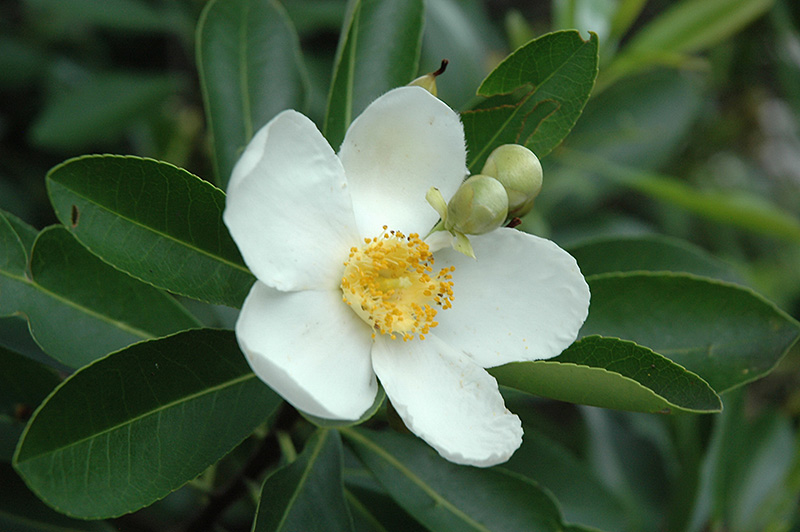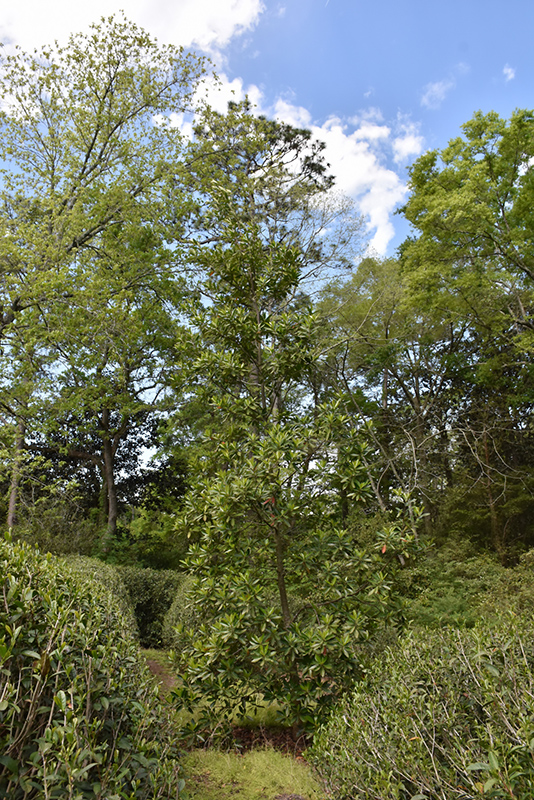Height: 20 feet
Spread: 15 feet
Sunlight:
![]()
![]()
Hardiness Zone: 8a
Other Names: Holly Bay, Gordonia
Description:
A standout for foliage and flowers; rounded, perfect white flowers with yellow centers appear in early summer; narrow, glossy green foliage is attractive; takes pruning well and can be maintained as a small tree or hedge; great for low drainage sites
Ornamental Features
Loblolly Bay features showy fragrant white round flowers with yellow eyes at the ends of the branches from early to mid summer. It has attractive dark green evergreen foliage which emerges red in spring. The glossy narrow leaves are highly ornamental and remain dark green throughout the winter. The peeling khaki (brownish-green) bark is extremely showy and adds significant winter interest.
Landscape Attributes
Loblolly Bay is a dense multi-stemmed evergreen tree with a shapely oval form. Its average texture blends into the landscape, but can be balanced by one or two finer or coarser trees or shrubs for an effective composition.
This is a high maintenance tree that will require regular care and upkeep, and should only be pruned after flowering to avoid removing any of the current season's flowers. It has no significant negative characteristics.
Loblolly Bay is recommended for the following landscape applications;
- Accent
- Hedges/Screening
- General Garden Use
Planting & Growing
Loblolly Bay will grow to be about 20 feet tall at maturity, with a spread of 15 feet. It has a low canopy with a typical clearance of 1 foot from the ground, and is suitable for planting under power lines. It grows at a slow rate, and under ideal conditions can be expected to live for 60 years or more.
This tree does best in full sun to partial shade. It is quite adaptable, prefering to grow in average to wet conditions, and will even tolerate some standing water. It may require supplemental watering during periods of drought or extended heat. It is particular about its soil conditions, with a strong preference for rich, acidic soils. It is somewhat tolerant of urban pollution. This species is native to parts of North America. It can be propagated by cuttings.


